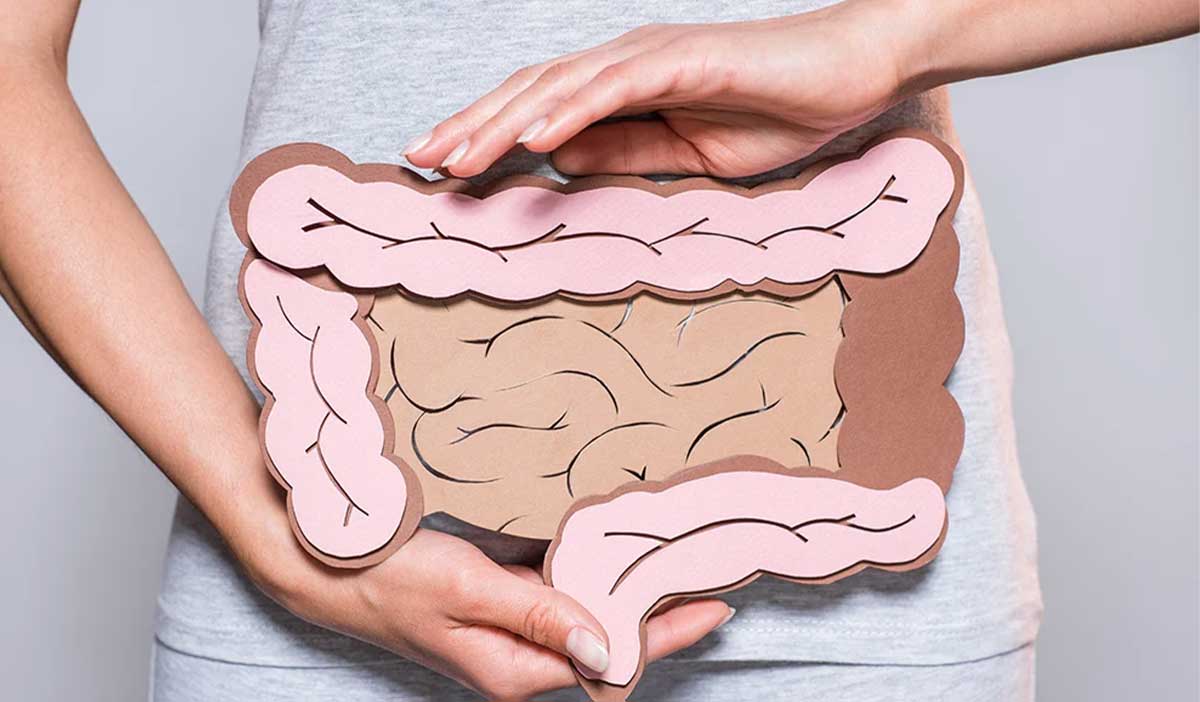Inflammatory bowel disease, or IBD, is the umbrella medical term used to describe the two most common digestive conditions—ulcerative colitis and Crohn’s disease—that affect more than 1.4 million Americans.

IBD symptoms
When active or “flaring up,” these illnesses share similar symptoms caused by chronic inflammation. Patients usually notice one or more of the following symptoms start suddenly or develop gradually:
- Severe abdominal pain, tenderness, and cramps
- Chronic diarrhea
- Constipation
- Urgent bowel movements
- Rectal bleeding
- Intestinal bleeding
- Weight loss
- Fatigue/exhaustion
Although the chronic but treatable diseases can afflict men and women of any age, 25% of cases are diagnosed before age 20.
No one really knows what causes IBD, but some scientists theorize that a combination of factors, like genetics, immune system responses, and environmental triggers, might be the culprits.
Living with IBD
While there is no cure, if you’ve been diagnosed with ulcerative colitis and Crohn’s disease, your health care provider can identify the most effective treatment options, therapies, and medications—based on your needs—to help you get back to living a happy, productive, normal life.
Ulcerative colitis
Ulcerative colitis is a disease of the colon, which is also called the large intestine. Patients with ulcerative colitis develop tiny ulcers on the surface of the inner lining of their colon.
Crohn’s disease
Crohn’s disease is a disease that can affect any part of your gut. It usually begins in the lower part of the small intestine, but it can also develop in the large intestine, stomach, and esophagus. Crohn’s disease sometimes causes problems in other parts of the body outside the digestive system.
Nutrition: What should you eat?
Every patient is different, but diet management is a great way for you to be an active participant in the treatment of your digestive disease.
While researchers haven’t found that any food in particular causes IBD, some patients find that avoiding or eliminating certain items from their diet is helpful.
Foods and drinks that typically worsen symptoms, especially during flare-ups, include:
- caffeinated beverages
- carbonated beverages
- alcohol
- high-fiber foods (such as brown rice and whole grain bread)
- spicy foods
- dairy products (such as milk and cheese)
- nuts and seeds
Your doctor will work with you to monitor your diet, and they may recommend a vitamin or mineral supplement to lessen the potential risk of your developing a nutritional deficiency.
Lifestyle changes: What else can you do?
Three ways you can help your body battle IBD is to get enough sleep each night, get in a little regular, light exercise, and reduce your stress.
The ultimate goal of these lifestyle changes is to make changes that increase the time your disease is in remission, and then, when flare-ups do occur, helping your body reduce their length and severity.
Get back to normal
Make an appointment to speak with your doctor if you’re experiencing any symptoms. They can review your medical history, perform a physical examination, and run tests, ultrasounds, and scans, as necessary, to make a proper diagnosis.
You might also like:
- Important health scans for people over 40
- How do you know when you need gallbladder surgery?
- How do you know when you need a colon screening?




